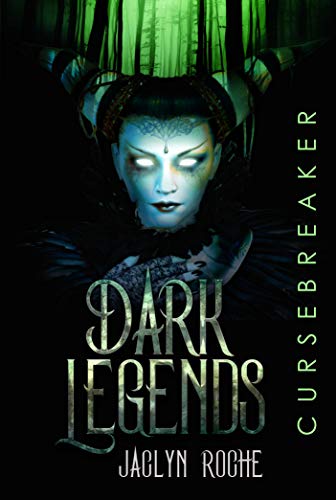Mystic Invisible Book Tour and Giveaway
June 4, 2021 by marianne h donley in category Apples & Oranges by Marianne H. Donley, Rabt Book Tours tagged as #RABTBookTours, Booktour, Fantansy, Ryder Hunte Clancy, young adult
Date Published: 3/17/21
Publisher: Winter Goose Publishing
Fifteen-year-old Monte moves to the mystically jeopardized Highlands of Scotland and discovers that life as a Celtic wizard is anything but easy. Whisperings of abnormal enchantments and vicious cat siths grip the small town he now calls home. Fear is at the helm and the instigator is unknown. An indefinite moratorium on magic is enforced. In a race against darkness, Monte and his friends must choose who to trust before time runs out, even if it means breaking some rules and facing danger head on.
About The Author
Ryder Hunte Clancy has lived most of her life in the desert but her heart belongs to the sea; her happy place, where brine and mist abound and allusive waves caress expansive stretches of compacted sand. A tried and true stay-at-home mom, she is often found scribbling notes between diaper changes or connecting plot points while everyone else sleeps. She survives off of toddler snacks like apple slices and cheese, and has just as much trouble keeping up with her fictional, teenage characters as she does her three small children. Mystic Invisible is her debut novel, the inspiration of which was gleaned from her husband’s homeland of Scotland, where fantasy, mystery, and folklore are rich and hits of adventure linger around every corner.
Excerpt
Mystic Invisible
Ryder Hunte Clancy
“Besides,” Garrick continued. “What else am I supposed to do? There’s not a lot of potential to
make hard and fast friends here, seeing as we’re the only Mystics around.”
“You could play with those madger thingies,” Monte suggested, as though he were the big
brother, not Garrick. He squinted at the line of firs across the field.
“And when would I ever need night-vision goggles?” Garrick asked. “That’s all they are.
They’re rudimentary.”
“Rudimentary?” Monte could never keep up with Garrick’s fancy words.
“Primal . . . basic . . . old,” Garrick rattled off.
His rant was interrupted by a loud whoop. The shout crossed through the field—a teenage battle
call—as a pale, springy kid scurried out from the firs.
“Finn?” Monte asked. “It’s Finn Cornelius!”
Finn sprung through the jungle of grass like a nymph, fear plastered across his face, pursued by a
posse of very large high school-aged boys.
“Hey!” Garrick tore toward the group. “Get away from him!”
Monte raced after his brother. A dark blur flashed in his peripheries, knocking him to the ground.
Dull lights, like distant stars, mottled his vision as he tumbled to a stop in the muddy grass. A
girl with scraggly black hair and bronzy skin stood above him. “Cameron?” He scrambled to his
Feet.
Cameron’s stare met his, her caramel eyes familiar and intense. The rainbow lights hung around
her neck, much dimmer than Monte remembered.
My Story and the Journey to Eye See
RYDER HUNTE CLANCY
For the dream seekers,
The downtrodden,
The courageous champions of good cause.
For the quirky and the quelled,
The unseen genius and
The undiscovered voice.
For the loud but unheard,
The soft and tender hearted.
For the quiet and devoted.
For the wallflowers,
The late bloomers,
Those ugly ducklings, now swans.
For the invisible ones.
I see you,
I hear you,
And I believe.
We are the change.
I recently had the opportunity to give my website a makeover. In doing so, it gave me the
opportunity to pen the above mission statement. This is what I live by. It’s what I march to
every day, rain or shine. It’s what I believe; from my calloused, keyboard-typing fingers, to the
very nucleus of my being. Everyone has a voice that should be heard, most especially those who
don’t believe they do. I used to be one of those people. I was more than just a wallflower. I was
invisible; so timid and “ordinary” that I was easily overlooked. But I always craved to be heard. I
tried many things to satiate that big, booming urge inside of me. However, it wasn’t until well
into adulthood that the anvil finally dropped. With a baby on my lap and a toddler at my feet, I
picked up a pen and started writing. The rest was history. I’m still quiet by nature but I have
finally found my voice, and so can you!
-Ryder
2 0 Read moreMaking Your Story Believable by Kat Martin
May 29, 2021 by marianne h donley in category Apples & Oranges by Marianne H. Donley, Guest Posts tagged as intrigue, Kat Martin, new release, romance, romantic suspense, Suspense, woman's fiction
Over the years, I’ve found one of the best ways to make your story believable is to use real places to locate the action and real names of restaurants and streets. Actually going there, of course, is the best way to make that happen.
In my new novella, COME MIDNIGHT, Breanna Winters, seated on an airliner next to a good-looking man in an expensive suit, finds herself kidnapped by Honduran terrorists. She doesn’t expect Derek Stiles, a corporate executive, to put his life at risk by volunteering to go along when Bree is dragged from the plane and marched into the jungle.
Unfortunately, I have never been to the jungle in Honduras or any jungle for that matter, aside from a brief visit to a tropical rain forest in Brazil and a stop in Belize.
So for this story, I didn’t go to Honduras, but I did do extensive research, and it wasn’t the first time. Beginning with with an old historical, SAVANNAH HEAT, set in the Yucatan Peninsula of Mexico and more recently, THE CONSPIRACY, which travels from the Caribbean to Columbia, I’ve learned a lot about life in the jungle—and it is far from easy.
In the novella, the good news is Derek Stiles is a former Navy fighter pilot with extensive survival training who has spent time in the jungle before. Still, it’s soon clear they’ll need to depend on each other if they’re going to survive.
I hope you will give COME MIDNIGHT a try and that you will look for Derek again in my full-length novel, THE PERFECT MURDER, out June 22nd, the last book in my Maximum Security Series
Till next time, all best wishes and happy reading, Kat

New York Times bestselling author Kat Martin is a graduate of the University of California at Santa Barbara where she majored in Anthropology and also studied History. Currently residing in Missoula, Montana with her Western-author husband, L. J. Martin, Kat has written sixty-five Historical and Contemporary Romantic Suspense novels. More than sixteen million copies of her books are in print and she has been published in twenty foreign countries. Kat is currently at work on her next Romantic Suspense.

Excerpt
Come Midnight
Kat Martin
The sound of a baby’s high-pitched, incessant crying put his teeth on edge. Derek Stiles forced himself to relax as he settled back in his wide business class seat. The airplane engines hummed outside the window, dulling the noise a little, but the crying only grew louder.
Derek silently cursed. His trip to Colombia had already gotten off to a rocky start when a meeting in the Houston office of Garrett Resources, where he worked as VP of Mergers and Acquisitions, ran overtime and he’d missed his non-stop flight. Now he’d be landing in El Salvador, laying over a couple of hours before changing planes and continuing on to Bogota, not getting to his hotel until well after dark.
He pulled out his laptop and set it on the fold-down table in front of him. He usually worked on a flight. He always had plenty to do, but he’d been staying up late every night so he also needed some sleep. It was important to be at the top of his game first thing in the morning.
The baby’s cries grew louder and his nerves revved up. He hadn’t really noticed the woman sitting in the seat beside him until she stood up and turned toward mother and child in the row behind him.
She jangled her car keys over the back of the seat and smiled. “Look, baby. Look at these. I bet you’d like to play with these, wouldn’t you?” The baby’s crying slowed, turned to whimpers, then sniffles, then stopped altogether. Glancing over his shoulder, Derek watched a little girl bundled in pink, maybe a year old, reach up for the car keys.
“I never thought of that,” the mother said, sounding desperate and making him feel guilty. He didn’t have kids but he could imagine how tough it would be to take a child on an international flight.
The mom, a black-haired woman in her mid-twenties, took out her own set of keys and held them up, but the baby ignored them, fascinated by the glittering heart on the end of the other keychain dangling in front of her.
“I hate to ask you this,” the mother said, “but is it all right if Sophie plays with your keys for a while?”
“Absolutely,” his seatmate said. She was pretty, he realized, with long blond hair and big blue eyes. A little above average height, slender but curvy in all the right places. “Once we’re in the air,” she continued, “if you want me to hold her, give you a little break, I’d be happy to.”
The mother’s smile held relief mixed with gratitude. “I might just take you up on that. My name is Carmen, by the way.”
“Breanna.” Her smile went even brighter and Derek felt an unexpected kick. He was usually able to leave his libido behind when he was away on business.
“You have a darling baby,” Breanna said.
Carmen smiled. “Thank you.”
The flight attendant urged Breanna to sit back down so the flight could get underway, and the engines roared, preparing for take-off.
“So I guess you’re a mom,” Derek heard himself saying, though he made it a habit not to talk on a flight. He always had too much to do.
Breanna shifted toward him. “I’d love to have children someday, but I’m not a mother yet. I work with kids so I know a few tricks.”
“What kind of work do you do?”
“I’m with a non-profit called Shelter the Children. Abrego Los Ninos in Spanish. We support an orphanage in a little village outside San Salvador. That’s where I’m headed.”
He smiled and held out a hand. “Derek Stiles. I know your name is Breanna.”
“Yes. Everyone just calls me Bree.”
They were an hour out of San Salvador International Airport when Derek noticed a commotion at the rear of the cabin.
Then the curtain behind the business class section jerked open and a lean, black-haired man stood in the aisle. Derek’s blood ran cold when he noticed the assault rifle strapped across the intruder’s chest.
Pre-order Come Midnight
Spotlight On Terri Osburn
May 27, 2021 by marianne h donley in category Apples & Oranges by Marianne H. Donley, Spotlight tagged as new release, Not You Again, romantic comedy, Terri Osburn, The Not Series

Terri Osburn writes contemporary romance with heart, hope, and lots of humor. After landing on the bestseller lists with her Anchor Island Series, she moved on to the Ardent Springs series, which earned her a Book Buyers Best award in 2016. Terri’s work has been translated into five languages, and has sold more than 1.5 million copies worldwide. She resides in middle Tennessee with four frisky felines, and two high-maintenance terrier mixes. Learn more about this international bestseller and her books at www.terriosburn.com. Or check out her Facebook page at https://www.facebook.com/TerriOsburnAuthor.
Terri’s Newest Release
Not You Again
Four blind dates in five days. I can’t believe I agreed to this.

Actually, I can. That’s what I do. I agree to things I don’t want to do to make other people happy. In this case, my four best friends. They’re worried about me and if going on a few dates will make them happy, then I’ll do it. How bad could they be?
I probably shouldn’t have asked that.
I’m starting to seriously wonder if my friends know me at all. Each pick is worse than the last, and none of them compare to my former fiancé. But then I guess maybe that’s the point. Someone new to help me forget the old.
To help me move on.
Except I don’t need a man to prove that I’ve moved on. Why can’t my friends understand that? And why does the same beautiful stranger keep saving me from these awful encounters? The universe seems to be throwing him into my path, and the more time I spend with him the more I wish that he was one of the dates.
There’s one more date left and I can’t help but wonder if he’ll pop up again. How many chance encounters can two people have? Pittsburgh is a big city so the chances are slim.
But what if…?
0 0 Read more
Sing to Me of Rain Book Tour and Giveaway
May 25, 2021 by marianne h donley in category Apples & Oranges by Marianne H. Donley, Rabt Book Tours tagged as E.B.Dawson, excerpt, fantasy, middle-grade fiction, new release
Date Published: 5/22/21
An innocent naiad. A wounded boy. An adventure that will change their lives forever.
Plip is a naiad of the Great Waterfall, destined to one day sing the songs that send rain out into the world.
Akino isn’t destined for anything but trouble. His father long gone, his mother working on a plantation far away, he doesn’t really belong in the village below the Waterfall. And the villagers don’t let him forget it.
When Akino convinces Plip to travel down the mountain with him, for his own selfish purposes, he launches them into a world more dangerous than either of them could imagine. A world where people are not always what they seem and the rain does not fall evenly across the land.
About the Author
E.B. Dawson was born out of time. Raised in the remote regions of a developing nation, traveling to America was as good as traveling thirty years into the future. Now she writes science fiction and fantasy to make sense of her unusual perspectives on life. Her stories acknowledge darkness, but empower and encourage people to keep on fighting, no matter how difficult their circumstances may be. She currently lives in Idaho with her family and her cat Maximus.
Contact Links
Purchase Links
A Rafflecopter Giveaway
Sing to Me of Rain
by E.B. Dawson
Captured
Plip shook herself and looked about tentatively. Out the opening of the globe, the caravan of kempelas strode on tirelessly over an endless sea of yellow sand. The bright blue sky hung low and thick all about them, almost tangible. Plip had the sensation for a moment that they were actually walking along the bottom of a great river, surrounded not by sky, but water.
Strange gray outcroppings began to emerge out of the blue. Porous rock which had been carved by the wind into sharp, jagged formations, like the teeth of some great monster.
But the illusion of water only reminded her how very far she was from the clear streams of the Mountain. She turned her attention to the orange sphere which housed her.
It seemed to be made of thick skin, stretched taut over a strong wooden frame. All about her were sacks of spices, piles of soft carpets, and various objects of fine metal, plus a plethora of items she could not identify. But just to her right was a cage with a very frightened looking bird inside. He was rather small and black, with a tuft of brilliant blue on his breast and matching blue rings around his eyes.
He kept tilting his head back and forth as he watched Plip and hopping left and right every few seconds.
“Poor thing. You’re as frightened as I am.”
The bird shrieked in alarm. His feathers puffed out all around his head and breast, forming a great black oval and revealing a larger stripe of bright blue. He shuffled back and forth in a funny little dance. His head seemed to have disappeared entirely.
Plip watched silently, thoroughly impressed but a bit confused, until the dance ended, and the little bird’s feathers settled back into place, revealing his head once more.
“Amazing!” Plip whispered.
The bird hopped backwards, lowered its head towards the floor and tilted its beak up suspiciously. “You did speak!” he cried, in a shrill voice. “Oh, this is terrible. What kind of a demon are you?”
“But you’re talking too,” Plip protested.
“I’m a shangrila bird, of course I can talk.”
“I never knew any birds that could talk,” Plip said.
The shangrila bird ruffled his feathers. “And how many birds have you known?”
“Well, none really.”
“Hmph. I thought as much. Birds are wildly misunderstood by bottom dwellers.”
“Bottom dwellers?”
“That’s what I said. Most of the world is made up of sky. Or do you never bother to look up?”
“I never thought of it that way,” Plip admitted, though she didn’t particularly like the bird’s tone.
“What am I thinking, trying to explain things to a sprite?” The bird straightened his neck.
“Who’s a sprite?”
“You are!” He flapped his wings impatiently.
“I’m not a sprite, I’m a naiad!”
“What’s the difference?”
Plip frowned. “As a matter of fact, I don’t know. What’s a sprite, exactly?”
“They live in the clouds,” the shangrila said. “They’re the ones who make it rain…or not rain, as the case may be.” He began pruning himself absentmindedly.
“They’re not the ones who make rain,” Plip protested. “The naiads and Weather Masters do that.”
“What nonsense are you babbling?”
Plip crossed her arms in irritation. “It isn’t nonsense, and I should think I know more about it than you, anyway.”
“Oh, really? You didn’t even know what a sprite was!” The shangrila crossed his wings comically.
Plip did a quick somersault inside her jar. “Well, I’ve never been inside a cloud.”
“My point exactly.” The shangrila would not look at her.
Curiosity softened Plip’s temper. “So, what is a sprite, exactly? Do they look like me?”
“A great deal…though now that I come to think of it, there are significant differences. You wouldn’t last long in the clouds; you are entirely too solid.”
Plip was beginning to suspect that there was no real ill will behind the shangrila’s insults. “And they don’t talk?”
“Certainly not. They haven’t the capacity for it. They aren’t really sentient, you know.”
“I didn’t know,” Plip said somberly.
“Well,” said the bird in a satisfied tone, “you are young.”
“I wonder if the Weather Masters know about the sprites,” Plip said softly to herself. “Please, Mr. Bird—”
“Mr. Burung, if you please.”
“Please, Mr. Burung, do you know how they make it rain?”
Burung stuck his chest out and cleared his throat. “Ah, well you see, it’s all rather involved and multifaceted and one might even say interdimensional.”
Plip’s eyes grew wide.
“It would take an expert to explain the process thoroughly, which I am not—though I understand why you may think I am. But I do think even the experts would agree that it could all be summed up by the word evaporation.”
Plip frowned.
“Yes, evaporation is that complicated process by which a cloud sheds its water and rain falls to the earth.”
“And the sprites help with this process?”
“Just so. And it must be quite a messy business, too. For they seem to always be squabbling among themselves.”
“This is all so much more complicated than I ever understood,” Plip sighed.
“As is life,” Burung said with a dramatic sigh, “as is life.”
“I wish Akino were here.”
“Who’s Akino?” Burung asked.
“He’s my friend. He’s clever and brave and used to being on his own.” She sighed again. “Do you know where they’re taking us?”
“Somewhere terrible, I expect.” Burung sunk his head into his shoulders. “The Sand Plains are not known for their spiritual enlightenment. They stopped visiting the White Temple decades ago.”
“What is the White Temple?” Plip asked.
“Bless me,” Burung cawed, “it’s sentient, but it’s a heathen. The White Temple is only the holiest place in all the lands. It is where the physical world and the spirit world connect. All those seeking enlightenment find their way there eventually.”
“Have you been there?”
Burung rocked back and forth in a self-satisfied manner. “Many times. The White Temple is located in the center of the forest which I call home. The White Monks are kind to my people and often choose us as companions for their lifelong journey toward enlightenment.”
“I had no idea!” Plip was duly impressed, even if she didn’t fully understand what it was she was impressed by. “What does enlightenment mean?”
Burung sighed. “Spiritual knowledge and understanding of Maha.”
“What is maha?”
“Maha is the ultimate being, the origin and sustainer of life. The sun rises by his decree.”
“Oh, you mean the Creator!” Plip gasped. “He taught the first naiads to sing and gave the Weather Masters their skill.”
“I suppose so,” Burung looked a little puzzled, “though I have never heard of you or your weather masters.”
Just then a man entered the globe, momentarily blocking out the dazzling sunlight and casting a shadow directly over Burung.
Affiliate Links
A Slice of Orange is an affiliate with some of the booksellers listed on this website, including Barnes & Nobel, Books A Million, iBooks, Kobo, and Smashwords. This means A Slice of Orange may earn a small advertising fee from sales made through the links used on this website. There are reminders of these affiliate links on the pages for individual books.
Search A Slice of Orange
Find a Column
Archives
Featured Books
LAIRD OF STEEL
Gellir faces the one intrepid warrior he may not be able to conquer.
More info →Harlequin Special Edition March 2021 Box Set 2 of 2
Three books in one . . .
More info →DARK LEGENDS: CURSE BREAKER
Kalissandra Doe has a to-do list worthy of the reincarnated goddess she could be.
More info →Newsletter
Contributing Authors
Search A Slice of Orange
Find a Column
Archives
Authors in the Bookstore
- A. E. Decker
- A. J. Scudiere
- A.J. Sidransky
- A.M. Roark
- Abby Collette
- Alanna Lucus
- Albert Marrin
- Alice Duncan
- Alina K. Field
- Alison Green Myers
- Andi Lawrencovna
- Andrew C Raiford
- Angela Pryce
- Aviva Vaughn
- Barbara Ankrum
- Bethlehem Writers Group, LLC
- Carol L. Wright
- Celeste Barclay
- Christina Alexandra
- Christopher D. Ochs
- Claire Davon
- Claire Naden
- Courtnee Turner Hoyle
- Courtney Annicchiarico
- D. Lieber
- Daniel V. Meier Jr.
- Debra Dixon
- Debra H. Goldstein
- Debra Holland
- Dee Ann Palmer
- Denise M. Colby
- Diane Benefiel
- Diane Sismour
- Dianna Sinovic
- DT Krippene
- E.B. Dawson
- Emilie Dallaire
- Emily Brightwell
- Emily PW Murphy
- Fae Rowen
- Faith L. Justice
- Frances Amati
- Geralyn Corcillo
- Glynnis Campbell
- Greg Jolley
- H. O. Charles
- Jaclyn Roché
- Jacqueline Diamond
- Janet Lynn and Will Zeilinger
- Jaya Mehta
- Jeannine Atkins
- Jeff Baird
- Jenna Barwin
- Jenne Kern
- Jennifer D. Bokal
- Jennifer Lyon
- Jerome W. McFadden
- Jill Piscitello
- Jina Bacarr
- Jo A. Hiestand
- Jodi Bogert
- Jolina Petersheim
- Jonathan Maberry
- Joy Allyson
- Judy Duarte
- Justin Murphy
- Justine Davis
- Kat Martin
- Kidd Wadsworth
- Kitty Bucholtz
- Kristy Tate
- Larry Deibert
- Larry Hamilton
- Laura Drake
- Laurie Stevens
- Leslie Knowles
- Li-Ying Lundquist
- Linda Carroll-Bradd
- Linda Lappin
- Linda McLaughlin
- Linda O. Johnston
- Lisa Preston
- Lolo Paige
- Loran Holt
- Lynette M. Burrows
- Lyssa Kay Adams
- Madeline Ash
- Margarita Engle
- Marguerite Quantaine
- Marianne H. Donley
- Mary Castillo
- Maureen Klovers
- Megan Haskell
- Melanie Waterbury
- Melisa Rivero
- Melissa Chambers
- Melodie Winawer
- Meriam Wilhelm
- Mikel J. Wilson
- Mindy Neff
- Monica McCabe
- Nancy Brashear
- Neetu Malik
- Nikki Prince
- Once Upon Anthologies
- Paula Gail Benson
- Penny Reid
- Peter J Barbour
- Priscilla Oliveras
- R. H. Kohno
- Rachel Hailey
- Ralph Hieb
- Ramcy Diek
- Ransom Stephens
- Rebecca Forster
- Renae Wrich
- Roxy Matthews
- Ryder Hunte Clancy
- Sally Paradysz
- Sheila Colón-Bagley
- Simone de Muñoz
- Sophie Barnes
- Susan Kaye Quinn
- Susan Lynn Meyer
- Susan Squires
- T. D. Fox
- Tara C. Allred
- Tara Lain
- Tari Lynn Jewett
- Terri Osburn
- Tracy Reed
- Vera Jane Cook
- Vicki Crum
- Writing Something Romantic
Affiliate Links
A Slice of Orange is an affiliate with some of the booksellers listed on this website, including Barnes & Nobel, Books A Million, iBooks, Kobo, and Smashwords. This means A Slice of Orange may earn a small advertising fee from sales made through the links used on this website. There are reminders of these affiliate links on the pages for individual books.

























































